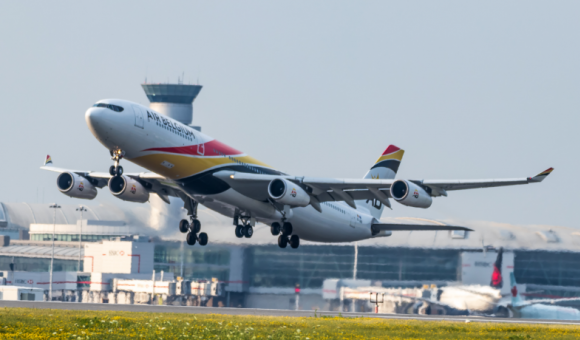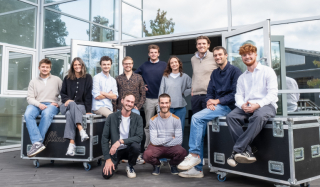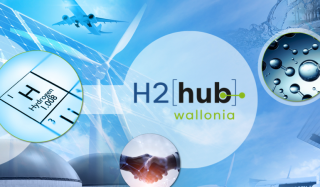
Whether you're considering basic or applied research, Wallonia is known and renowned as a region at the forefront of technological development. And it is primarily to the quality and density of its higher education and universities that it owes this reputation.
Many researchers and scientists from the Wallonia-Brussels Federation have received a large number of international awards and prizes, including the Nobel Prize for Physics to François Englert in 2003. This was the 7th Nobel Prize to be awarded to a Walloon.
This technological expertise makes a major contribution to the creation and development of cutting-edge international businesses. More than 200 spin-offs have been created as a result of university research and are real technological marvels conquering international markets.
Creativity is a priority in Wallonia, which launched the Creative Wallonia framework programme. Its aim is to promote the emergence of a generalised culture of innovation in Wallonia by acting in a way that is correlated across education, businesses, networking, ICTs and the international market. In 2013, this led to Wallonia being recognised as a European Creative District by the EU from among 44 other candidate regions: this is international recognition of its huge potential for creation and innovation.
Some figures:
- 130 colleges
- 9 universities grouped into three academies (in Wallonia and Brussels)
- 13,000 researchers
- 700 PhDs awarded every year
- 300 public and private research centres
This vast inter-connected system makes it possible to pool means, skills and resources and also allows cooperation between researchers, innovative start-ups, SMEs and large industrial groups, thus promoting economic development.
This flexibility and the proximity of innovation stakeholders effectively are embodied in the form of competitiveness clusters, a major focus of Walloon economic development policy. The policy of competitiveness clusters funds projects in five areas: research/innovation, employment/training, investment, infrastructures/equipment and international. These projects are based on collaboration and their objective must be innovative. They are carried out within synergies and partnerships between businesses, training centres and public or private research units.
The competitiveness clusters are involved in six thriving sectors:
- health
- mechanical engineering
- aeronautics-space
- green chemistry, sustainable construction and environmental technologies
- agribusiness
- transport and logistics
These clusters are structured together with a series of clusters and more specialised and highly competitive business networks, particularly in the areas of:
- eco-construction
- sustainable construction
- sustainable energy
- plastics
- image, sound and text technologies
- information and communication technologies
Digital technologies are of course involved. Wallonia also has an ambitious digital plan to "boost" the Walloon digital economy by developing a digital industry producing digital goods and services, and by promoting the integration of digital technologies to aid business growth and competitiveness. The aim is also to develop a "digital culture" among citizens and, more specifically, young Walloons undergoing training. The aim is also to roll out very high-speed Internet throughout Wallonia and make it a Giga Region.
Wallonia is also obtaining the resources to implement its innovation policies. It is investing massively in centres of excellence which lead the region towards employment and growth. It also proposes a series of financial support measures for R&D, in direct collaboration with its competitiveness clusters, and for investment; it provides the financial resources for the creation, development and growth of businesses with high technological potential.
It is therefore not surprising that Walloon industry has conquered and continues to conquer the world, with a number of global leaders in their sectors. It is also not surprising that an impressive number of foreign businesses have come to set up in Wallonia and enjoy this expertise and the remarkable skills of our researchers and technical personnel.
Linked articles
Related articles

A new, innovative and environmentally-friendly flat glass production process developed in Wallonia

Breathalyzer boxes from Walloon company Fline expand internationally

JOST logistics company leads the way in terms of sustainability





 Sense of sharing
Sense of sharing  Accessibility
Accessibility  Technical know-how
Technical know-how  Quality of life
Quality of life